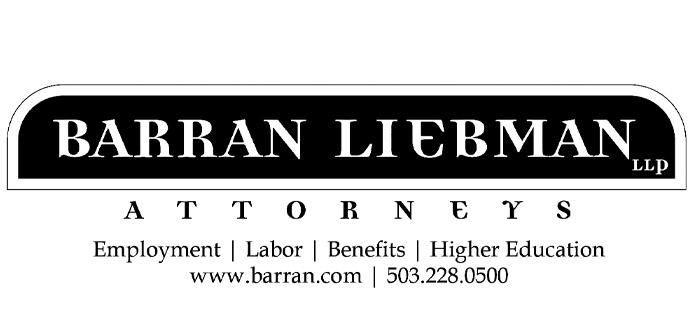It is easy to overlook the significance of the United States Department of Labor’s (“Department’s”) newly announced regulatory approach to worker classification. These rules have undergone steady revisions in hopes of articulating a clearer and more reliable test to determine if an individual is an employee or independent contractor. The trouble with this incremental approach is that industry customs may have undue influence on worker classifications and lead to businesses misunderstanding the risk that might flow from classifying certain categories of workers as independent contractors (and therefore not subject to the protection of wage and hour laws and numerous employment rights). While these industry practices may be reinforced through years of experience, the Department has gone to great lengths to emphasize that industry practice is legally irrelevant. Given the Biden administration’s new approach, there is no better time for companies to audit their worker classification practices and reconsider their criteria for classifying workers.
Old Regulatory Approach
In the final days of President Trump’s term in 2021, the Department attempted to clarify when an individual is in business for the employer or themselves. The “streamlined” approach primarily looked at two factors—the nature and degree of control over the work and the worker’s opportunity for profit or loss. While these two factors would frequently determine the appropriate worker classification, the 2021 rule also identified three secondary factors that may tip the balance in close cases.
The 2021 rule gave employers more freedom to set the terms and conditions of an independent contractor’s work without compromising their classification. It assured employers that they are free to require an independent contractor to comply with legal obligations, satisfy health, safety and quality assurance standards, and subject the independent contractor to a business’ training and policies. The 2021 rule also downplayed whether the worker was performing work integral to the employer’s business. According to studies by different interest groups, millions of workers could be reclassified under this 2021 rule, but the rule was enjoined by court action and later withdrawn.
What’s New?
The new rule, which is scheduled to take effect later this year, rejects the streamlined approach. The Department acknowledges that the touchstone economic realities test is underdeveloped, and its rule will inevitably inject new uncertainty into worker classifications. Nonetheless, it reiterated that, ultimately, what matters most is whether the worker is economically dependent on the employer or whether the worker is in business for themselves.
The Department proposes a six-factor balancing test. In brief, the factors are: (1) the opportunity for profit of loss depending on managerial skill; (2) comparative capital investments by the worker and employer; (3) permanence and exclusivity of the relationship; (4) the nature and degree of control over the performance of the work and the economic aspects of the working relationship; (5) the extent to which the work performed is an integral part of the employer’s business, regardless of how indispensable the employee is; and (6) the skill and initiative in connection with business-like initiative. The Department’s proposed rule will consider any other factor it believes is relevant, underscoring that each worker must be classified on the basis of the particular arrangement with the company and how entrepreneurial the worker is.
It also underscores that the rule does not anticipate an independent contractor will have an exclusive or indefinite relationship with a single company. Professional service, medical providers and construction companies should therefore pay particularly close attention to President Biden’s regulatory approach; even if these businesses do not closely supervise a worker, they may invite risk by classifying workers as independent contractors.
Importantly, the new approach differs from the 2021 rule in that a business’ decision to place control measures to ensure legal compliance, compliance with health or safety standards, or quality control is now indicative of an employment relationship.
An Enforcement Priority
In a recently released statement of policy, the Fair Trade Commission (“Commission”) has announced worker classification anti-competitive effects will now be an enforcement priority for gig companies. These companies rely on independent contractors who earn income by providing on-demand work, often through an app. With the demands of the pandemic economy, 16 percent of the American workforce now earns money through gig work and these workers are disproportionately people of color. The Commission notes that companies retain substantial control over independent contractors through the use of artificial intelligence, algorithms, or surveillance technology and make decisions about workers’ schedule and pay, undermining their ability to classify workers as independent contractors.
The Commission has already issued new regulations to curb deceptive claims about gig work and required companies to be transparent and disclose potential earnings and costs. The Commission has also announced it is closely scrutinizing non-competition and non-solicitation agreements with independent contractors. However, now the Commission will also scrutinize overly broad non-disclosure agreements and it will be unsurprising if the Commission includes worker classification as part of their regulatory review of mergers and acquisitions.
Worker classification risks may be costly even for companies that do not depend on gig work. Employers who misclassify workers may be liable for back taxes, technical wage and hour violations and other penalties if the worker does not fall within an overtime or meal break exemption. And because industry practice can provide a false sense of security, revisiting worker classifications and auditing your company’s practices is prudent to stay ahead of these upcoming changes in the law.
Josh Goldberg is an attorney with Barran Liebman LLP, where he advises and represents employers on a full range of employment matters. For questions, he can be contacted at 503-276-2107 or jgoldberg@barran.com.





